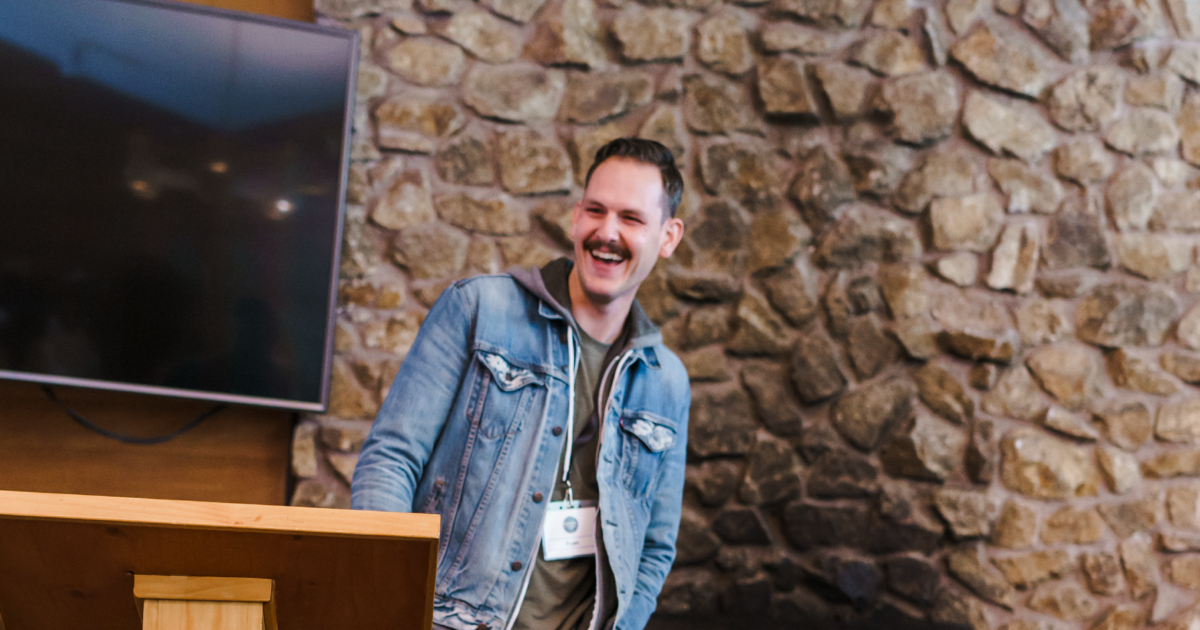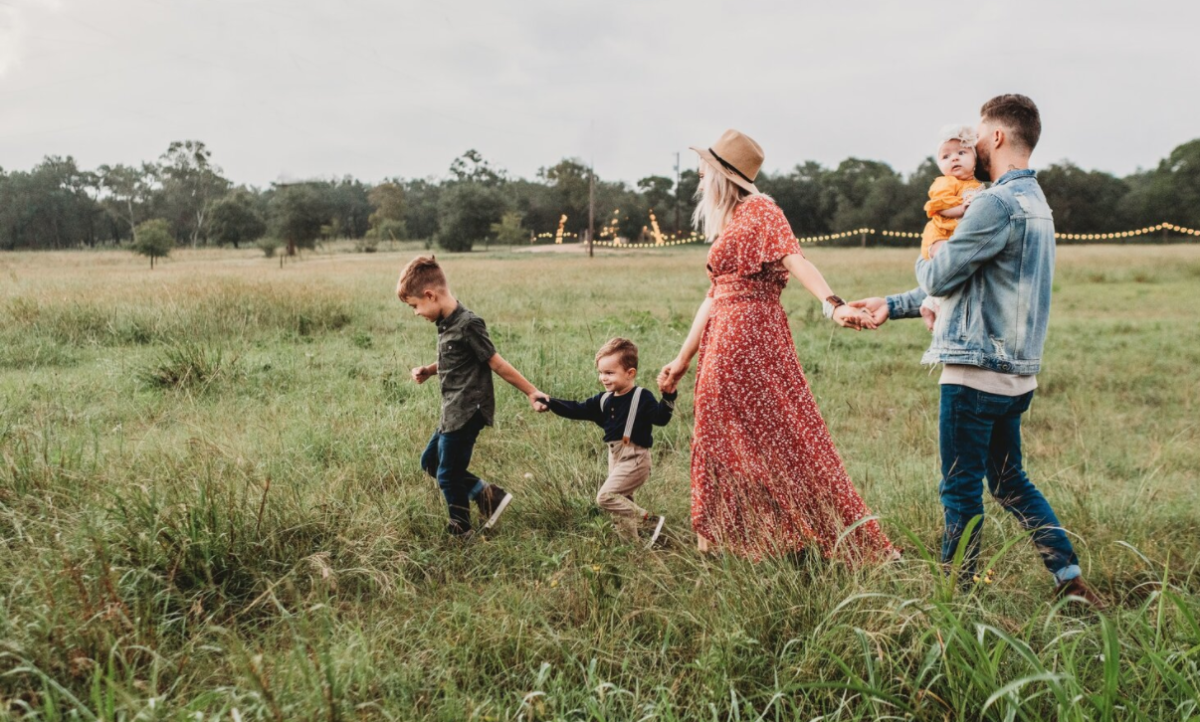I hate letting people down. I hate that feeling of realizing that you promised to do something but failed to follow through, especially when it comes to my kids. The other day I told my 4-year-old daughter that I would take her to the park after I got home from work. She was really looking forward to it and brought it up several times throughout the day. However, I was unable to get home in enough time to take her. She was crushed. Many tears, a tantrum, and 30 minutes later I was finally able to calm her down and get her to bed. Let’s just say it was not my best moment as a dad.
Letting people down is hard, especially little children. There is something about the joy, anticipation and excitement children express that makes it particularly crushing to disappoint them. That is why I find so much comfort in the third most common theme found in the Bible about yātôm [YA-tome] (the Hebrew word for “the fatherless”).
Let’s play a game. I will quote a few passages about yātôm from the Bible and you try to guess what today’s theme is. Ready? Okay, here they are:
For the Lord your God is God of gods and Lord of lords, the great, the mighty, and the awesome God, who is not partial and takes no bribe. He executes justice for the fatherless and the widow, and loves the sojourner, giving him food and clothing. – Deuteronomy 10:17-18
But you [the Lord] do see, for you note mischief and vexation, that you may take it into your hands; to you the helpless commits himself; you have been the helper of the fatherless. – Psalm 10:14
Sing to God, sing in praise of his name… A father to the fatherless, a defender of widows, is God in his holy dwelling. God sets the lonely in families, he leads out the prisoners with singing – Psalm 68:4-6
The Lord watches over the foreigner and sustains the fatherless and the widow – Psalm 146:9
Were you able to identify the theme running through all four of these passages? All four of these texts – and many others like them – strongly communicate that God himself provides for and defends yātôm. As one article puts it, “the Bible presents God as the special representative of [yātôm], both attending to their cries for help (Exod 22:23) and performing justice on their behalf (Psa 68:6).” (1) God himself is the one who “executes justice for,” helps, sustains and fathers the fatherless. He is the one watching over them, fighting for their well-being and guarding their every step as they walk through life.
I find profound significance in how this third theme connects with the previous two (if you haven’t already read the previous three blog posts, I recommend you do so). The first theme is a warning from God, “If you mess with my kids, I will mess with you.” The second theme is an invitation from God, “If you bless my kids, I will bless you.” But the third theme is a promise from God, “No matter if people oppress or bless, I will protect and defend the fatherless.” It is a beautiful promise that reveals the deep nature of God’s compassionate heart. God hates watching yātôm suffer, and in time he will bring them justice and provide what they need.
As a foster dad who also works in child welfare, I find incredible confidence in the doctrine of God’s love for yātôm. It fortifies my work. It gives me strength to keep going. There is so much brokenness in our child welfare system. Children and youth in foster care have seen the worst humanity has to offer, and if their restoration solely rested on my shoulders, I would crumble. That is a weight I simply cannot carry. But if God is at work among the lives of yātôm, if He is the one ultimately providing for and defending these amazing children, then I have the greatest ally anyone could ever hope for. If the ruling, reigning Christ is on the side of children and youth in foster care, that is a team worth joining. That is a task worthy of my labor.
The doctrine of God’s love for yātôm is far from being an excuse to disengage – instead, it is an invitation to partner with God. The one who says, “well, if God loves yātôm, then I don’t need to,” misunderstands the means by which God cares for the fatherless. Yes, God can and does directly provide for and defend yātôm himself. But even more often He works on the hearts and souls of men and women of faith, calling them to be His hands and feet. God primarily cares for and defends yātôm by animating the church to act on his behalf. We are God’s holy ambassadors, sent out by the father to care for those he loves and protects. God’s people are called to move towards yātôm in the name of Jesus, for the sake of God’s glory (Matt 5:16).
This is certainly the case in my story. Growing up I had no context or understanding of foster care. There is nothing in my nature that desires to care for kids in the foster care system. But as I began to read the Bible, the Holy Spirit filled me with a conviction that God was calling me to be a father to the fatherless. The only reason I said “yes” to being a foster parent is that I had directly encountered the unconditional and sacrificial love of God through Christ. It is because God has placed his love deep inside my heart that I have love to give to the children who enter my home.
My prayer for all those involved in caring for yātôm is that they would love and lead from a place of confidence knowing that God himself cares for and defends the fatherless. We can rest assured knowing that God himself is the one who sets the lonely in families. Our confidence doesn’t lie in our own ability to save and to heal. It lies with the King of Kings and Lord of Lords. It lies with the Great Physician, the ultimate father to the fatherless and defender of the vulnerable. God’s people are free to serve and love and care and give knowing that at the end of the day, it is God who brings the increase (1 Cor 3:7) and it will be God who gets the glory.
Theme #1: God will bring judgment on those who oppress yātôm
Theme #2: God will bring blessing on those who protect and care for yātôm
Theme #3: God himself provides for and defends yātôm
Ryan MacDonald
1 – Blois, I. (2014). Protected Classes. In D. Mangum, D. R. Brown, R. Klippenstein, & R. Hurst (Eds.), Lexham Theological Wordbook. Lexham Press.










